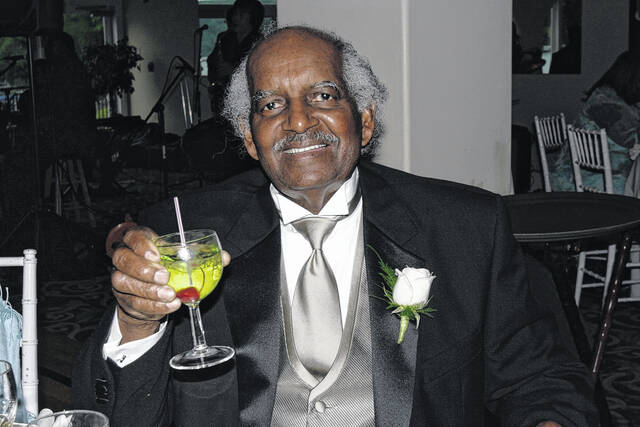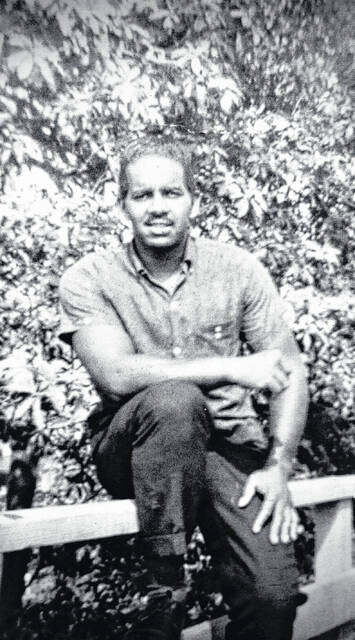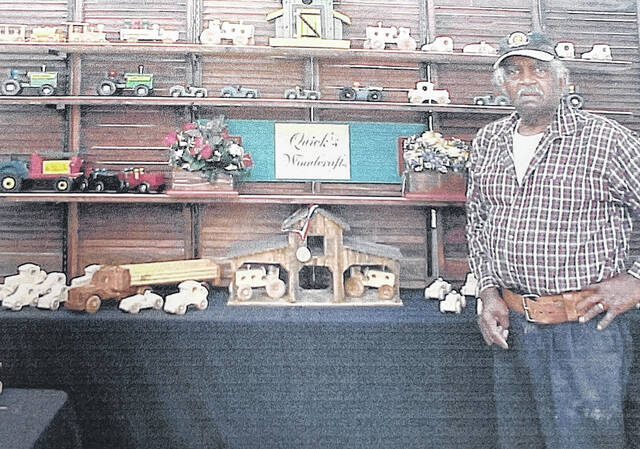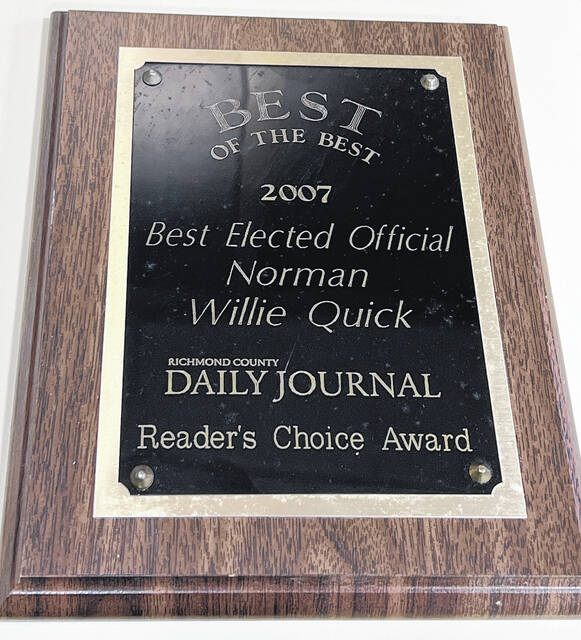
Willie Quick, the first Black mayor of Norman, was more than a leader.
Courtesy photo by Butch Quick
Willie Quick, the first Black mayor of Norman, was more than a leader. He was a family man who believed in hard work, kindness and staying true to who you are. Through love and determination, Quick earned many honors in his life and made a lasting impact on his family and the people around him.
“He was a good man. A proud man. Loved where he was born and raised. It’s paramount to that,” said his son, Butch Quick. “He moved out of a place that was not kind to him coming up, but it still held a strong place in his heart and he went home. Despite everything, he grew up and passed it, and let the love of that place that brought him here be what drove him back home.”
Quick’s road to becoming mayor was not easy. Though he won by one vote and had strong support, his opponent Bill Reynolds asked for a recount. Still, Quick took on the challenge and rose to lead with strength and courage.
“It’s incredible. Him breaking barriers, standing up, being that strong, proud Black man that despite his physical size, he was a giant to me — I’m always looking up to him,” said Butch. “That’s beyond the cherry on top, such an incredible accomplishment for him to become mayor in a town that did all it could to hold him down, to suppress the Black people in that town, to keep them in place, and him standing up and saying ‘no, that’s not how it is, this is what we’re going to do and I’m here for that job,’ and he did it.”
Quick’s work as mayor was continuously recognized in the Richmond Daily Journal, and in 2007 he won the Reader’s Choice Award for Best Elected Official.
While he made history in politics, Quick’s heart was with his family. He was a loving husband to Barbara Jean and a caring father to William “Butch,” Barbara Ann, Annette, Torita and Michelle. His life was full of interests. He was a chef, a toy maker and a man who stayed curious and creative.
“Worldly he was. We grew up listening to stories of him being in Europe, specifically Germany and stuff during the war. He spoke German to us around the house especially to one of my sister, Torita. It opened us up to not being afraid — to go anywhere, do anything. Anything is possible. It’s what you put into it,” said Butch. “She [Torita] has traveled as much as I around the world. Her and I are comfortable dropping in any place and making our way without any hesitation or worries.”
Quick was born in Richmond County and later moved to New York, where he finished school at the New York School of Culinary Arts. He served in the Army and went on to become a well-known chef. His skills led him to become the first Black franchise owner of the original International House of Pancakes in California.
“He was strong, open, kind and thoughtful,” Butch said. “We moved different places because of his work with the International House of Pancakes (IHOP) and opening franchises and things like that. He would drop us into a neighborhood where a lot of times we would be the first or second Black family that moved into a neighborhood, and that taught us how to be strong, ownness of self, proud of self and how to get along with strangers at that moment, and they wouldn’t be strangers for long.”
Quick made sure his family stayed close no matter where they lived. Butch remembers how his dad would take him and his sisters on last-minute road trips.
“Spontaneous — as a kid, he would just come home some days from work and tell everybody, ‘go to bed early, we’re getting up really early in the morning,’ and we hit the road. Road trips were an essential part of our growing up, which is always great,” said Butch.
They often traveled to Norman to see family.
“Friday after putting in a full day’s work, he would grab me up or one of my sisters and just drive down there, 12-14 hours straight. Knock it out, go to my grandmother’s, hang out, leave Sunday, come back, go to work and take us to school. It was a regular thing,” Butch said.
Quick also enjoyed making wooden toys, which he sold at Gifted Hands in Rockingham. He was always creating and always moving forward.
“It’s kind of Renaissance-like, the man he was to me,” said Butch. “If he saw something and he wanted it or wanted to do it, that was it. He went for it, nothing held him back.”
When Quick decided to run for mayor, Butch, a graphic designer and photographer, offered to help. But his father had his own plan.
“He told us how he was going to do this. I remember asking him ‘look if you need anything, just let me know.’ He said ‘no, I’m good, I got this. Don’t worry about it, I’ll let you know’ and he just did it. It was something he wanted to do and took it to heart and ran with it. He was just that kind of guy— if he set his mind to it, it was done,” Butch said.
Even when faced with challenges, Quick stayed hopeful and steady.
“There was some things he bumped up against obviously, but he never let anything hold him back. You push, and hopefully people will open up and receive. It’s not always the case, but you keep steady to the course and you will make your way,” said Butch.
His legacy was honored at the Norman Field of Honor ceremony, where his life and work were remembered with pride.
“What really blew my mind and was just incredible was that memorial that they did there in Norman. The presents, the presentation — that is the standard of what should be done in every city in America. It was powerful and beautiful,” said Butch.
Willie Quick lived a full life shaped by courage, care and strong values. He opened doors for others and showed his family that anything is possible when you lead with heart.
Reach Ana Corral at acorral@cmpapers.com




